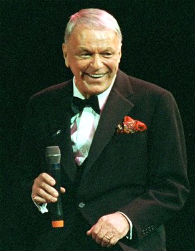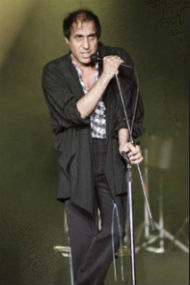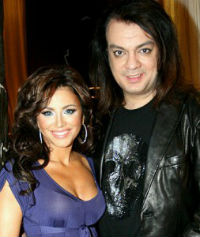Listen to congenial
 Music critic Ilya Ovchinnikov believes that the tradition of starting an acquaintance with the classics through the music of Bach and Mozart is not entirely true. After all, there are several classical composers whose music is more in tune with the inner life of modern man. Among them are Mahler, Shostakovich and Stravinsky. The turn of the century gave rise to geniuses who speak the same language with us. If the music of the XIX century, which makes up the mainstream of the repertoire of modern performers, might have annoyed you beforehand, then these works will surely seem fresh, interesting and congenial to you.
Music critic Ilya Ovchinnikov believes that the tradition of starting an acquaintance with the classics through the music of Bach and Mozart is not entirely true. After all, there are several classical composers whose music is more in tune with the inner life of modern man. Among them are Mahler, Shostakovich and Stravinsky. The turn of the century gave rise to geniuses who speak the same language with us. If the music of the XIX century, which makes up the mainstream of the repertoire of modern performers, might have annoyed you beforehand, then these works will surely seem fresh, interesting and congenial to you.
We are listening to Mahler
Although most of Gustav Mahler’s life came in the 19th century, he became the first composer who, destroying romantic canons, boldly jumped into the 20th century, very accurately predicting the torn consciousness of people who would witness world disasters. In his life there was a crucial year when he wrote a work of an extraordinary tragic heat – Symphony No. 6. Despite its duration (80 minutes), it listens in one breath, reminding an exciting novel with constant plot twists. Mahler almost all music takes the soul. You can not love her, but it is impossible to remain indifferent to her. Since the 1960s, thanks to the efforts of Leonard Bernstein, Mahler’s boom began, so it’s not difficult to hear Mahler alive.
Listening to Stravinsky
Igor Stravinsky is not for nothing called a chameleon composer. During the course of his life, he radically changed his style several times, so if you hear his works created at the beginning, middle and end of his creative career, it is absolutely impossible to believe that they were written by the same composer. All his life Stravinsky was worried that, despite the fact that he continues to create, the most famous of his works are the early ballets – “The Firebird”, “Petrushka” and “Sacred Spring”. The premiere of the ballet “Sacred Spring”, staged by Nijinsky, is considered the loudest musical scandal of the 20th century. “Spring” is in many ways a visionary work, a story about half-humans and half-sights on the eve of an era when people had to lose their human appearance. For Stravinsky, this was the first truly original work, created without regard to other composers, a real breakthrough. You should start with it.
We are listening to Shostakovich
Unlike Stravinsky, the work of Shostakovich is a whole, like the lyrics of Pushkin or the novels of Dostoevsky. For some, Shostakovich’s music may be associated with something coarse and “Soviet”. This erroneous opinion is formed due to the fact that the most famous (but not the best) of his work is the “Leningrad Symphony”. Shostakovich has works more vivid, which can make a strong impression on beginners. For example, Symphony No. 5, which he wrote in 1937, trying to escape from the avalanche of party criticism that fell upon him. The authorities liked the classical, clear structure of the symphony and the triumphant pathos ending. At the same time, the content is absolutely brilliant, multi-layered work, ideal for exploring the music of Shostakovich. After you can go to the Symphonies number 6 and number 9. They are both rather short, colorful, tuned and do not give bored.
If you want to approach the study of the classics thoroughly, starting with the basics, you can first listen to a few theoretical courses and read a couple of specialized books. Most often, beginners are advised of Robert Greenberg’s basic course, Great Music and his Great Masters course, in which each lecture is dedicated to one of the famous composers. If you do not like Greenberg’s manner of presentation, you can listen to the introductory course of Listening to Music by Professor Craig Wright, who explains the structure of classical works in a fun and intelligible way. A wonderful twenty-minute lecture on how to love the classics, read Benjamin Zander at TED.
There are not so many clear and interesting books about classical music in Russian. You can read Stephen Fry’s Incomplete and Final History of Classical Music, Darren Henley’s Short Music History and The Unpretentious When to Applaud Fiddler Daniel Hope. In the “ZHZL” series one can find the biographies of many composers, for example, several years ago a very successful book about Tchaikovsky was published. Perhaps, to begin with, reading the biography of Liszt or Chopin will be more interesting than reading about Bach, whose life was not so rich in vivid events and love dramas.





